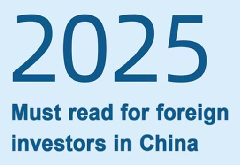Provisions for Supervision of Drug Distribution
Provisions for Supervision of Drug Distribution
(SFDA Decree No.26)
The Provisions for Supervision of Drug Distribution, adopted at the executive meeting of the State Food and Drug Administration on December 8, 2006, is hereby promulgated and shall go into effect as of May 1, 2007.
Shao Mingli
Commissioner of SFDA
January 31, 2007
Provisions for Supervision of Drug Distribution
Chapter I
Article 1 These Provisions are formulated for the purposes of strengthening drug supervision, regulating drug distribution order and ensuring drug quality in accordance with the Drug Administration Law of the People's Republic of China (hereinafter referred to as Drug Administration Law), the Regulations for Implementation of the Drug Administration Law of the People's Republic of China (hereinafter referred to as Regulations for Implementation of the Drug Administration Law) and the requirements of the relevant law and regulations.
Article 2 Any institutions or individuals engaged in the purchase, sales and supervision of drugs in the People's Republic of China shall abide by the Provisions.
Article 3 Drug manufacturers, distributors and medical institutions shall be responsible for the quality of the drugs that they produce, distribute or use.
Drug manufacturers and distributors shall carry out reforms and innovations in the direction of pharmaceutical logistics provided that drug quality is assured.
Article 4 The drug regulatory departments encourage individuals and organizations to involve in the social supervision on drug distribution. Individuals or organizations have the right to report or accuse of any violation of the Provisions to the drug regulatory departments.
Chapter II Supervision on Drug Purchase and Sales by Manufacturers and Distributors
Article 5 Drug manufacturers or distributors shall be responsible for their drug purchases and sales, and liable for the purchases and sales activities of their sales staff or offices in the name of their enterprise.
Article 6 Drug manufacturers or distributors shall train their purchase and sales staff on drug related laws, regulations and professional knowledge, and establish training records including time, venue, content and trainees.
Article 7 Drug manufacturers or distributors shall strengthen the management of the sales staff and set up specific rules for their sales behaviors.
Article 8 Drug manufacturers or distributors shall not store or spot trade drugs on the premises not approved by the drug regulatory departments.
Article 9 Drug manufacturers shall sell drugs that they produce in the name of themselves, and shall not sell any drug that they produce for contract manufacturing or any drugs produced by others.
Article 10 Where a drug manufacturer or wholesaler sells drugs, it shall provide the following materials:
(1) Copies of the Drug Manufacturing Certificate or Drug Supply Certificate, stamped with the seal of the enterprise, and the business license;
(2) Copies of the approval documents for the drug to be sold, stamped with the seal of the enterprise ;
(3) For import drug sales, relevant proof documents should be provided in accordance with the related provisions of the State.
Where a drug manufacturer or wholesaler sends any of its sales staff to sell drugs, it shall, in addition to the materials prescribed in the previous paragraph of this Article, provide a copy of the authorization letter with the seal of the enterprise. The original authorization letter shall contain the authorized drugs, regions and time of validity for drug sales, indicate the identity card numbers of the sales staff, and be stamped with the enterprise seal and legal representative seal (or signature). The sales staff shall show the original authorization letter and identity card for the check by drug purchasers.
Article 11 Where a drug manufacturer or wholesaler sells drugs, it shall provide sales document indicating supplier';s name, drug name, manufacturer, batch number, quantity, price, etc.
Where a drug retailer sells drugs, it shall provide sales document indicating drug name, manufacturer, quantity, price, batch number, etc.
Article 12 Where a drug manufacturer or distributor purchases drugs, it shall request, examine and retain the relevant certificates and documents of the supplier in accordance with the requirements set forth in Article 10 of the Provisions, and request and retain sales document in accordance with the requirements set forth in Article 11 of the Provisions.
The documents retained by the drug manufacturer or distributor in accordance with the previous paragraph of this Article shall be kept till one year after the date of expiry, but not less than three years.
Article 13 Where a drug manufacturer or distributor knows or should know that any person without certificates produces or distributes drugs, it shall not provide the person with any drug.
Article 14 A drug manufacturer or distributor shall not provide premises, qualifications documents, notes, etc. as conveniences for others to distribute drugs in its own name.
Article 15 A drug manufacturer or distributor shall not spot trade drugs by means of exhibition, exposition, trade fair, commodity fair or product promotion event.
Article 16 A drug distributor shall not purchase or sell pharmaceutical preparations prepared by medical institutions.
Article 17 A drug distributor shall not change its distribution mode without approval of the drug regulatory department.
A drug distributor shall operate within the approved distribution scope in the Drug Supply Certificate.
Article 18 A drug retailer shall, pursuant to the requirements of drug classification regulations set forth by the State Food and Drug Administration, sell prescription drugs in the presence of prescriptions.
Any drug retailer selling prescription drugs or Class A non-prescription drugs shall, in the absence of its licensed pharmacists and other qualified pharmaceutical professionals, put up a public notice and stop selling prescription drugs and Class A non-prescription drugs.
Article 19 For drugs that need low-temperature or cold storage as specified in drug insert sheets, the drug manufacturer or distributor shall transport and store the drugs with low-temperature or cold storage facilities in accordance with the relevant provisions.
When finding any drug manufacturer or distributor violates the requirements in the previous paragraph of this article, the drug regulatory department shall seal up or seize the drugs concerned immediately and deal with the matter in accordance with law.
Article 20 A drug manufacturer or distributor shall not provide the public with prescription drug or Class A non-prescription drug by means of tie-in sale, offering free drugs in association with sales of drug or commodity sale, etc.
Article 21 A drug manufacturer or distributor shall not sell prescription drugs directly to the public by post or over internet.
Article 22 Any illegal purchase of drugs is prohibited.
Chapter III Supervision on Drug Purchase and Storage by Medical Institutions
Article 23 The pharmacy established by a medical institution shall have the premise, equipment, storage facilities, hygienic environment, and pharmaceutical professionals required for drug dispensing. It shall also have the drug quality control units or personnel, and establish a system for drug storage.
Article 24 Where a medical insititution purchases drugs, it shall request, examine and retain the relevant certificates, documents and notes of the supplier in accordance with the requirements set forth in Article 12 of the Provisions.
Article 25 Where a medical institution purchases drugs, it shall establish and apply an examination and acceptance system, and keep authentic and complete purchase records. Purchase records shall indicate the adopted name of the drug in China, manufacturer (for Chinese crude drug, the origin should be noted), dosage form, date of expiry, drug approval number, supplier, quantity, price and date of purchase.
Drug purchase records shall be kept till one year after the date of expiry, but not less than three years.
Article 26 A medical institution shall establish and apply a system for drug storage and maintenance, and take necessary measures to ensure drug quality, such as cold storage, protection against freeze and humidity, ventilation, moisture proof, protection from direct light and fire, and avoidance of insects and rodents.
A medical institution shall store drugs and non-drug products separately; Chinese crude drugs, prepared slices of Chinese crude drugs, pharmaceuticals, and traditional Chinese medicine preparations shall be stored separately by category.
Article 27 A medical institution or family planning technical service institution shall not directly provide drugs for patients without diagnosis or treatment.
Article 28 A medical institution shall not sell prescription drugs directly to the public by post or over internet.
Article 29 Where a medical institution purchases drugs via a centralized tendering, it shall comply with the relevant requirements of the Drug Administration Law, Regulations for Implementation of the Drug Administration Law and the Provisions.
Chapter IV Legal Liabilities
Article 30 In any of the following circumstances, the drug manufacturer or distributor shall be instructed to rectify within a time limit and given a disciplinary warning; and if the drug manufacturer or distributor fails to do so, it shall be fined not less than RMB 5,000 yuan but not more than RMB 20,000 yuan:
(1) any drug manufacturer or distributor in violation of Article 6 of the Provisions;
(2) any drug manufacturer or wholesaler in violation of the first paragraph of Article 11 of the Provisions;
(3) any drug manufacturer or distributor, in violation of Article 12 of the Provisions, failing to keep the relevant documents as required.
Article 31 Any drug manufacturer or distributor in violation of Article 7 of the Provisions shall be given a disciplinary warning and instructed to rectify within a time limit.
Article 32 In accordance with the provisions in Article 73 of the Drug Administration Law, in any of the following circumstances, the drugs illegally sold and the illegal gains therefrom shall be confiscated, and the drug manufacturer or distributor shall be fined not less than two times but not more than five times the value of the drugs illegally sold:
(1) any drug manufacturer or distributor, in violation of Article 8 of the Provisions, spot trading drugs on the premises not approved by the drug regulatory departments.
(2) any drug manufacturer in violation of Article 9 of the Provisions;
(3) any drug manufacturer or distributor in violation of Article 15 of the Provisions;
(4) any drug distributor in violation of Article 17 of the Provisions.
Article 33 Any drug manufacturer or distributor, in violation of Article 8 of the Provisions, storing drugs on the premises not approved by the drug regulatory departments,shall be punished pursuant to the provisions in Article 74 of the Regulations for Implementation of the Drug Administration Law.
Article 34 Any drug retailer in violation of the provisions in the second paragraph of Article 11 of the Provisions shall be instructed to rectify and given a disciplinary warning; and if the drug retailer fails to do so within a time limit, it shall be fined not more than RMB 500 yuan.
Article 35 Where a drug manufacturer or distributor, in violation of Article 13 of the Provisions, knows or should know that any person without certificates produces or distributes drugs, but still provide the person with drugs, they shall be given a disciplinary warning, instructed to rectify and fined not more than RMB 10,000 yuan. If the circumstances are serious, they shall be fined not less than RMB 10,000 yuan but not more than RMB 30,000 yuan.
Article 36 Drug manufacturers and distributors in violation of Article 14 of the Provisions shall be punished pursuant to the provisions in Article 82 of the Drug Administration Law.
Article 37 Where a drug distributor, in violation of Article 16 of the Provisions, purchases or sells pharmaceutical preparations dispensed by medical institutions, it shall be punished pursuant to the provisions in Article 80 of the Drug Administration Law.
Article 38 Any drug retailer in violation of the first paragraph of Article 18 of the Provisions shall be instructed to rectify within a time limit and given a disciplinary warning; if it fails to do so or the circumstances are serious, it shall be fined not more than RMB 1,000 yuan.
Where a drug retailer, in violation of the second paragraph of Article 18 of the Provisions, sells prescription drugs or Class A non-prescription drugs in absence of licensed pharmacists or other qualified pharmaceutical professionals, it shall be instructed to rectify within a time limit and given a disciplinary warning; if it fails to do so, it shall be fined not more than RMB 1,000 yuan.
Article 39 Where a drug manufacturer or wholesaler, in violation of Article 19 of the Provisions, fails to transport drugs under low-temperature or cold storage conditions as specified in insert sheets, it shall be given a disciplinary warning and instructed to rectify within a time limit; if it fails to do as instructed, it shall be fined not less than RMB 5,000 yuan but not more than RMB 20,000 yuan. Where the drugs concerned are legally proved to be counterfeit or substandard drugs, the drug manufacturer or wholesaler shall be punished in accordance with the relevant provisions of the Drug Administration Law.
Where a drug manufacturer or wholesaler, in violation of Article 19 of the Provisions, fails to store drugs under low-temperature or cold storage conditions as specified in insert sheets, it shall be punished pursuant to the provisions in Article 79 of the Drug Administration Law. Where the drugs concerned are legally proved to be counterfeit or substandard drugs, the drug manufacturer or wholesaler shall be punished in accordance with the relevant provisions of the Drug Administration Law.
Article 40 Any drug manufacturer or distributor in violation of Article 20 of the Provisions shall be instructed to rectify within a time limit and given a disciplinary warning; if the drug manufacturer or distributor fails to do so or the circumstances are serious, they shall be fined not more than two times the value of the free drugs offered, but not more than RMB 30,000 yuan.
Article 41 Any institution, in violation of Article 23 to Article 27 of the Provisions, shall be instructed to rectify within a time limit; if the circumstances are serious, it shall be announced.
Article 42 Where a drug manufacturer or distributor in violation of Article 21 of the Provisions or a medical institution in violation of Article 28 of the Provisions sells prescription drugs directly to the public by post, over internet, etc., they shall be instructed to rectify, given a disciplinary warning, and fined not more than two times the value of the drugs sold, but not more than RMB 30,000 yuan.
Article 43 Any illegal purchase of drugs, in violation of Article 22 of the Provisions, shall be punished pursuant to the provisions in Article 73 of the Drug Administration Law.
Article 44 Where a drug regulatory department or its staff that neglects its duty fails to stop or punish illegal activities that should be stopped or punished, administrative sanctions shall be imposed to the person directly in charge and other persons directly responsible. If a crime is constituted, criminal liabilities shall be investigated in accordance with law.
Chapter V Supplementary Provisions
Article 45 Spot trading of drugs in the Provisions refers to the activity that drug manufacturers, distributors or their appointed sales staff carry and sell drugs to unspecified objects on spot other than the premises approved by the drug regulatory departments.
Article 46 With respect to the supervision on the distribution of specially controlled drugs, vaccines, and military medicines, if otherwise provided by the relevant laws, regulations and provisions, they shall prevail.
Article 47 The Provisions shall come into force as of May 1, 2007. As of the date when the Provisions goes into effect, the Provisions for Supervision of Drug Distribution (Interim) (SFDA Decree No.7) implemented on August 1, 1999 shall be annulled therefrom.
Note: In case of any difference in interpretation between the English version and the Chinese version, the Chinese version shall prevail.



